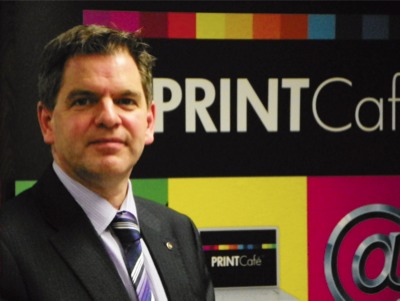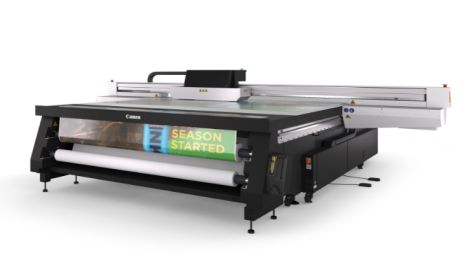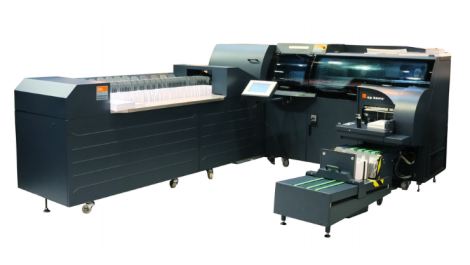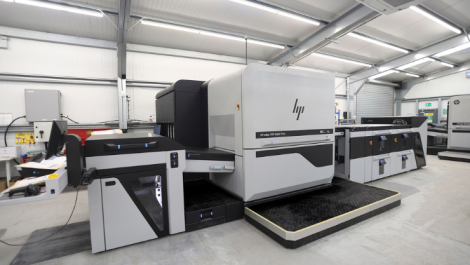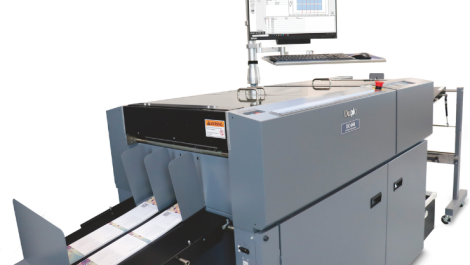Managing director of John E Wright in Nottingham, which is a member of the GDL network of print businesses. GDL owns the PrintCafé brand, a growing franchise concept targeting the 18 to 30 age group.
People are saying that copy shops are dead, but they’re not. There hasn’t been any imagination and branding and they have not kept up to date with equipment. Here at John E Wright, the PrintCafé concept has transformed something that was run down into something bright and happening. We have a comfortable welcome area, high tech machines, in-your-face messaging, and we’re highly service orientated. Our sales are up by 25% and our profitability nearly doubled last year because of extra work coming through PrintCafé.
The 18-30 age group is a market sector that I strongly believe has been neglected from a customer service point of view. Young people might not understand technical things about their artwork files and colour, but if you spend some time with them, they are incredibly loyal and will come back time and time again. I think printers have been quite abrupt and sometime a little rude to the student community in the past. When a student comes in and has not got the file set up correctly, it’s not because they woke up that morning and decided to go into the printer and be a pain. It’s because no-one has ever taken the time with them. We do show them, and they are so appreciative. Those students will be young professionals within a few years. They can bring their laptops in or use one of our two work stations to put their memory sticks in. They might want a photobook for example, and we say, we will take it from here. They can wait, have a cup of coffee and, shortly thereafter, they will walk out with a photobook, dissertation or whatever. Everything is immediate. There are 280 architecture students here in Nottingham, all studying here for six years, and they will each spend between £100 and £200 on print per year. That’s a market size of perhaps a quarter of a million pounds, and we will get 30 to 40% of that. There are fashion, design, and engineering students in the city as well, and they all need to present course work and final dissertations.
It’s not just students, we’re targeting the SOHO (Small Office Home Office) market too. A lot of work is done these days by individuals sub-contracting from home. They need to have print that has impact. They will send the file in electronically and pick up the work the following day, or sometimes the same afternoon. These customers often build up one-to-one relationships with our staff – staff they can trust. It’s not so much that we are competing with other printers; we are competing with clients buying their own machines. If we can provide a quality product, fast, we can all grow the copy shop market. We’re now looking to grow PrintCafé as a franchise concept. By May we should have 13 open. There are a lot of big university towns that we are not in, and we can now go to potential franchisees with case studies of the concept working really well in Nottingham, Derby and Leicester. All the ground work has been done, and we can open a new PrintCafé in two weeks, using a company’s existing equipment and staff, some new furniture, a little training and a lick of paint.
It doesn’t mean losing your own brand or your existing customers. For example, in Sheffield we will be opening a PrintCafé@Pinders. We have marketing and technical expertise, design capability and group purchasing deals with all of the major manufacturers. New franchisees will definitely save money, and they will probably get the franchise fee back just in equipment and consumables deals. We would expect prospective franchisors to have kit that produces a quality product. We are not saying you have to buy Xerox or HP. It just needs to be high quality. Who in the print industry would not want to produce good quality? You don’t have to become a member of GDL either. Franchise costs are £500 per month. Prontaprint was 10% of turnover – that’s ridiculous.
One really important aspect of the enterprise is that you must appoint a PrintCafé champion who lives and breathes the project. We’ve had one PrintCafé failure, and this operation did not have a champion, nor could they get close to the university. That taught us something. The difference is having a champion who believes in the project and who enjoys being with other young people. It’s about what’s happening on the front line, and the PrintCafé champions are dealing with this every day.
